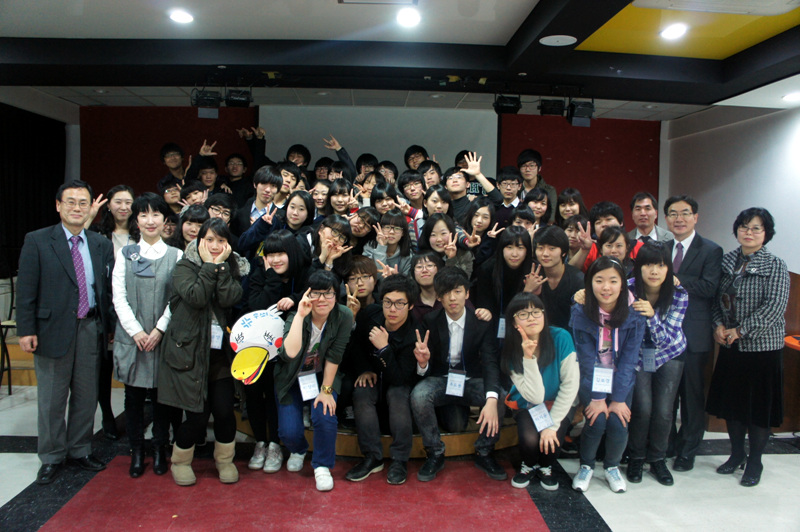On January 15th, the communications officer for the UN Governance Center, Mr. Kim Jeong Tae gave a lecture during the MIZY Youth Reporters’ orientation. Mr. Kim has written many books, including Story wins Speculations and The Design for the 90%, which have helped, and is still helping, the youth to see the world in a different view. During the lecture, Mr. Kim stressed the importance of “paper power” in our information-based society and the ways in which the MIZY reporters can benefit from it.
For next year or so, the newly recruited MIZY reporters will be writing articles on global interactions; to help them set some kind of guideline, the MIZY center invited Mr. Kim Jeong Tae on the MIZY Reporters Orientation Day. Having benefited from writing, Mr. Kim explains why’s for and how’s to writing using the following key words: paper power, publication, and search.
Paper Power:
“I can conquer the universe with 24 soldiers; they are the alphabet letters.”
What powers does the paper have? What powers does the writing have? Well, according to Benjamin Franklin, he could conquer the universe with writing. This might be a little extreme, but Mr. Kim’s assertion is not much different. He says writing is one efficient tool in persuading the world, making the world see what you see. However, not all writing buys the hearts of the others. According to Mr. Kim, meaningful “stories” do the job right; but to write these good stories, you need much preparation, and here “reading” comes in.
Mr. Kim says that reading is like filling a large jar, “You gradually fill up the space with the knowledge obtained through reading, and when the last drop of knowledge falls into the jar, the contents overflow. The overflowing pool of knowledge splashes on other people, and thus, the process of ‘sharing’ your knowledge begins.”
Hence, it is not the reading process where the core power of paper lies; instead, it is the “sharing” part. Until now, it was you who were informed and persuaded by the writing of others, and the next process is for you to inform and persuade the others with your knowledge. Mr. Kim brands this next process “publication”. Publicizing does not refer to the process of formally producing a piece of writing, but it refers to the simple process of “making public what is private”. Thus, you may be young, inexperienced, and your stories might not be about the hot issues of today. Also, you nonetheless have all the right to “publicize” your stories. Through many steps of publicizing, you familiarize yourself with writing, and gradually develop skills for meaningful and persuasive writing.
Mr. Kim gives his own experience in publicizing as an example. He has had many “publicizing” experiences. He first began his writing in his church pamphlet. Like most others, he initially found writing publicly a difficult task. But as the weeks passed by he started to express freely his ideas in the hope to practice revealing is ideas into words. With this experience as the foundation, he tried many writing tasks from then on, such as publicizing a book about life in the Korean army, working as a student journalist, and working in a publications company. Those practices have led him write a book in just few weeks, like in the case of Story Wins Speculations.
The final keyword Mr. Kim stresses in writing is “searching”, on the internet.
“Almost everything can be searched these days on the internet. What is searched is what is reliable and interesting. So, you should use this side of searching as a means to revealing and sharing your stories to a large audience in short amount of time. Nothing else can be an easier start to the journey of persuading the world”
And this is where the MIZY reporters come in. The reporters have been given the chance to reveal themselves. As reporters, we have the duty to write meaningful and informing articles. We could simultaneously make this a chance to practice publicizing ourselves.
Reporters who have heard the lecture were greatly inspired by the heartfelt advices of Mr. Kim Jeong Tae. Jae Hee, Choi(17), one of the English-reporters commented “The lecture was helpful for me in settling myself in the place of a reporter. I was a little anxious before, but now I plan to write articles that readers find easy to approach and understand, all the while developing myself with the repeated practices in writing.” Also, Korean-reporter Yong Min, Seo(17) said “I learned very much from the lecture, and look forward to writing articles that can represent the many advices the officer gave to us”.
/MIZY Youth Reporters, Ji-won Choi

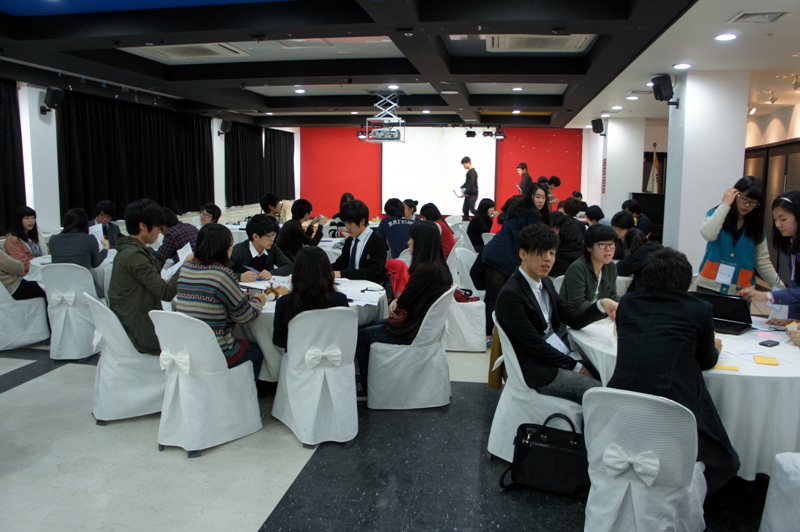
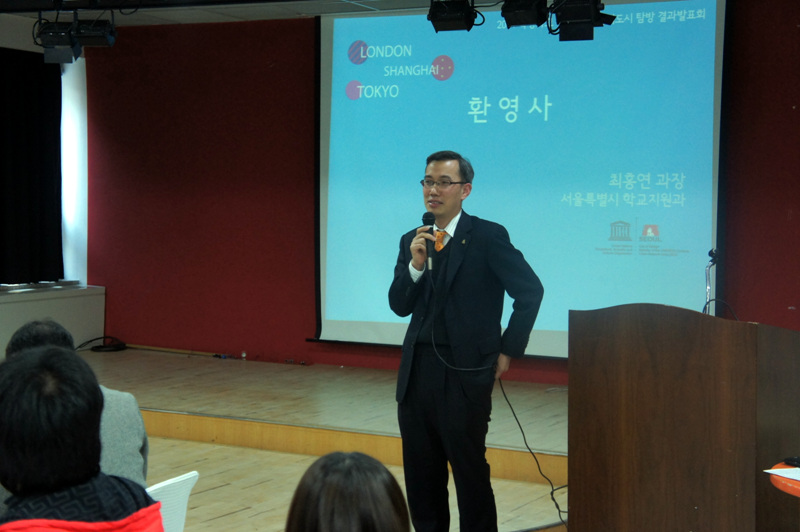
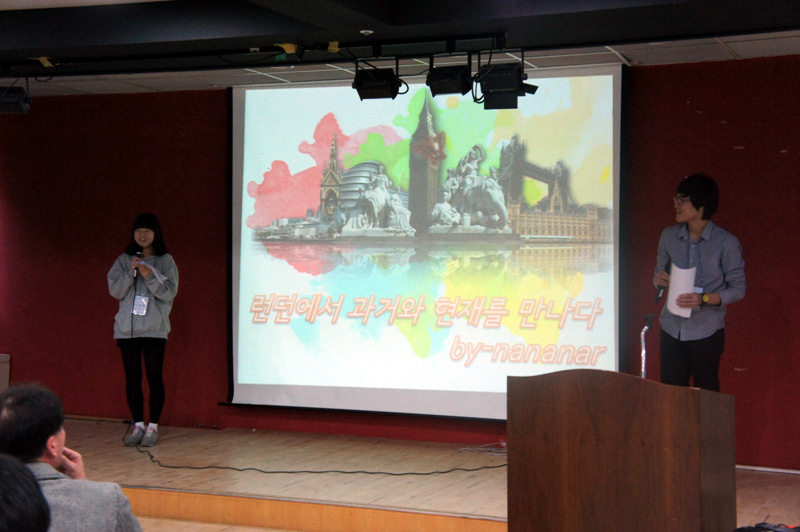
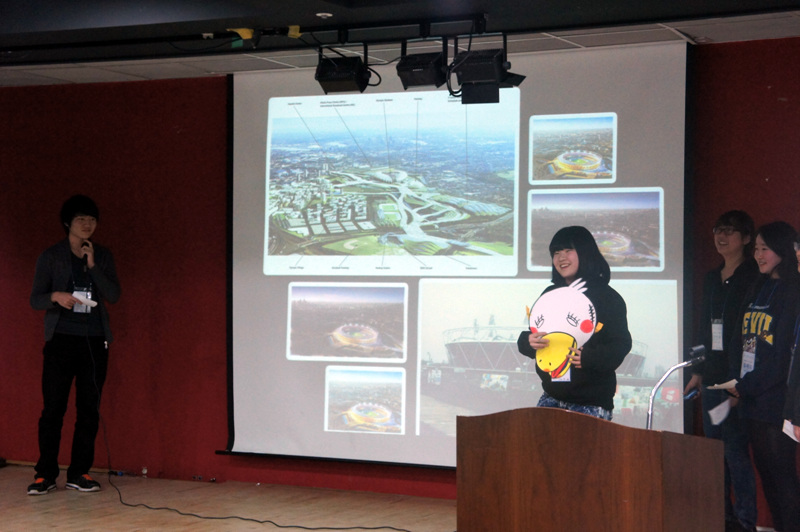
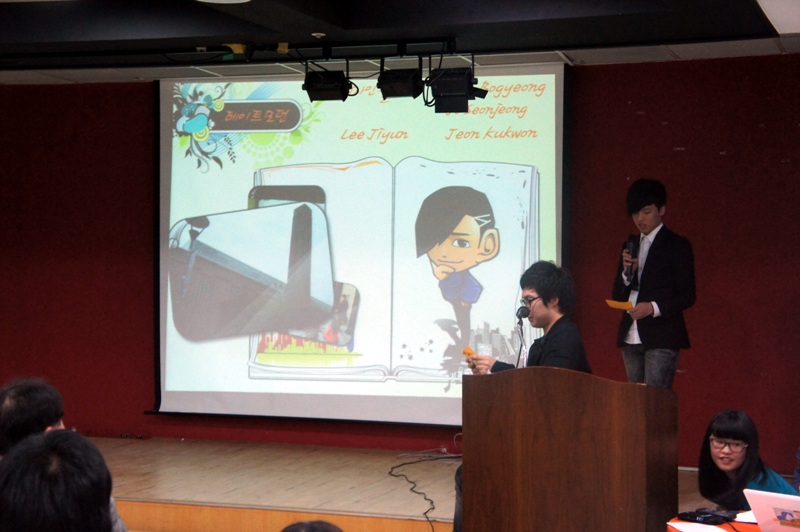
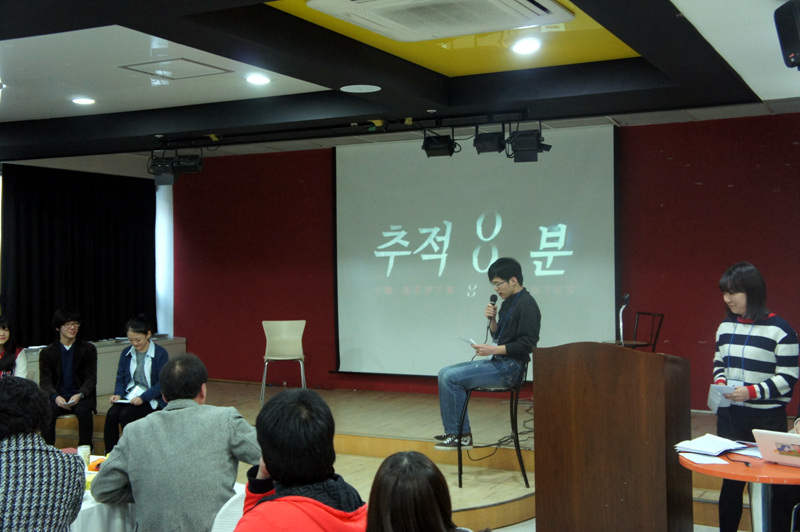
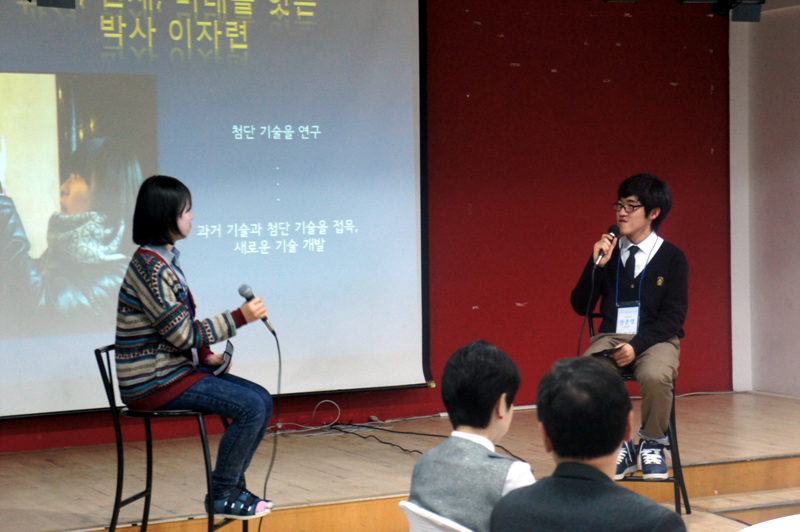
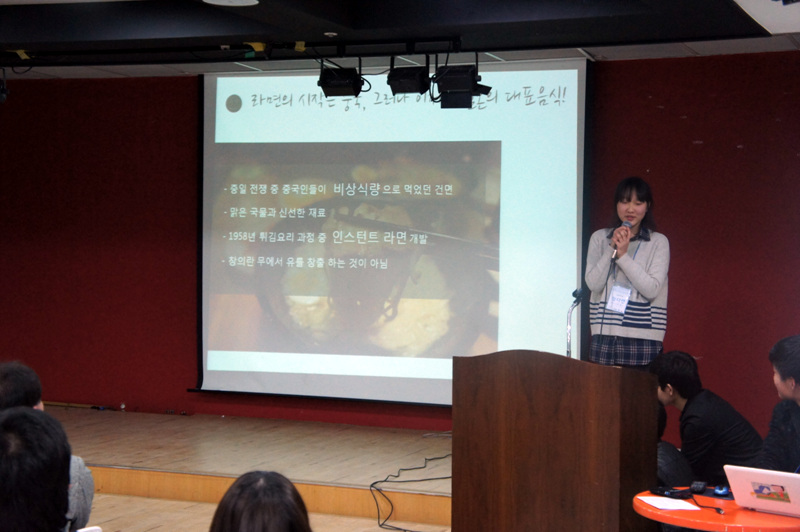
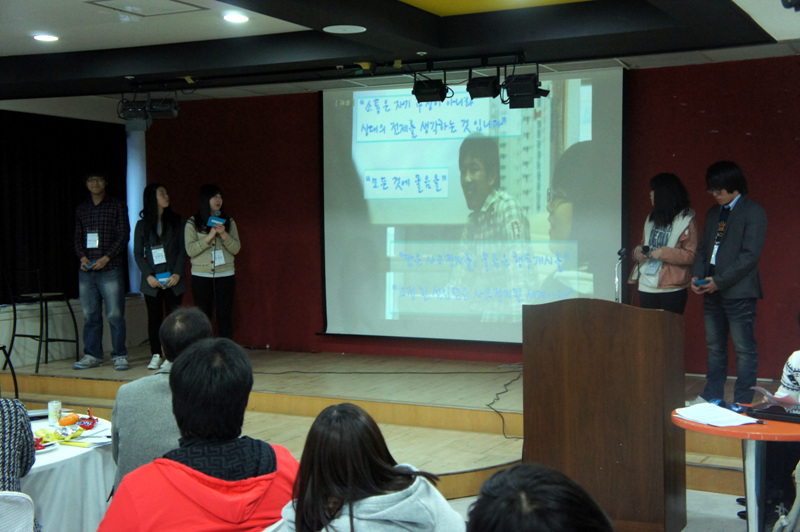
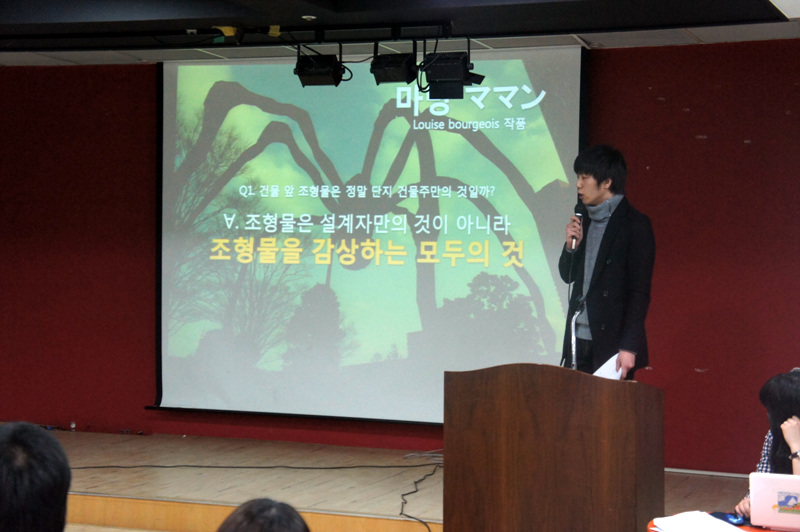
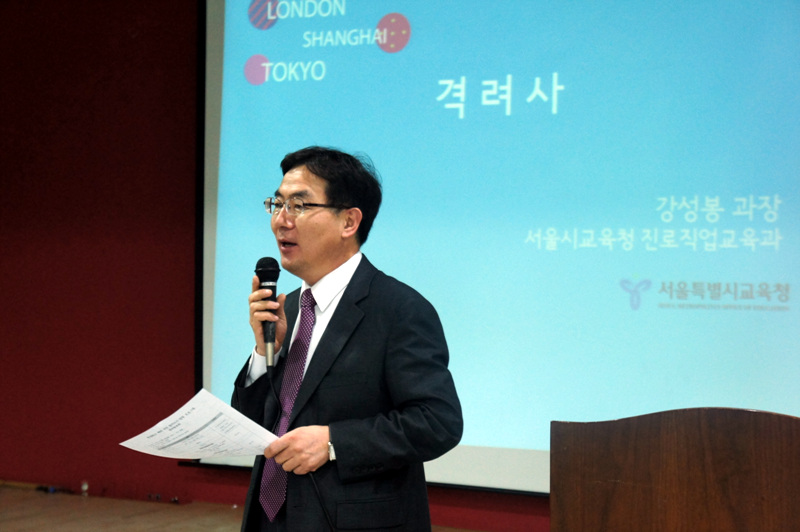
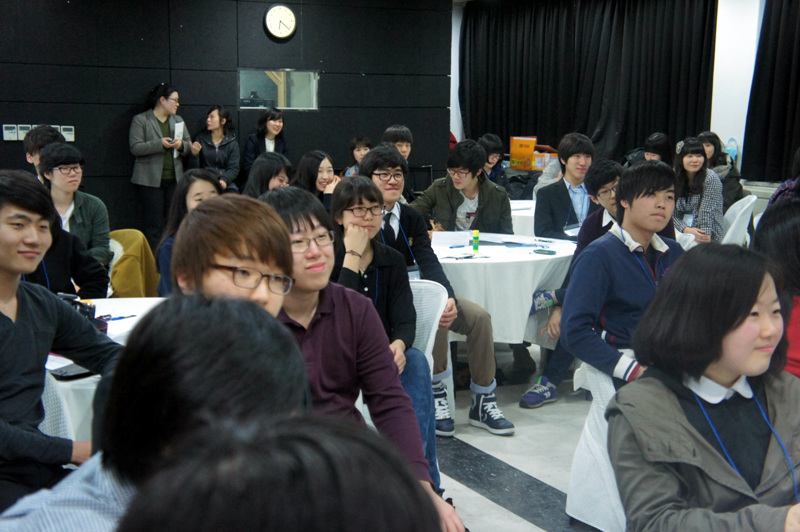
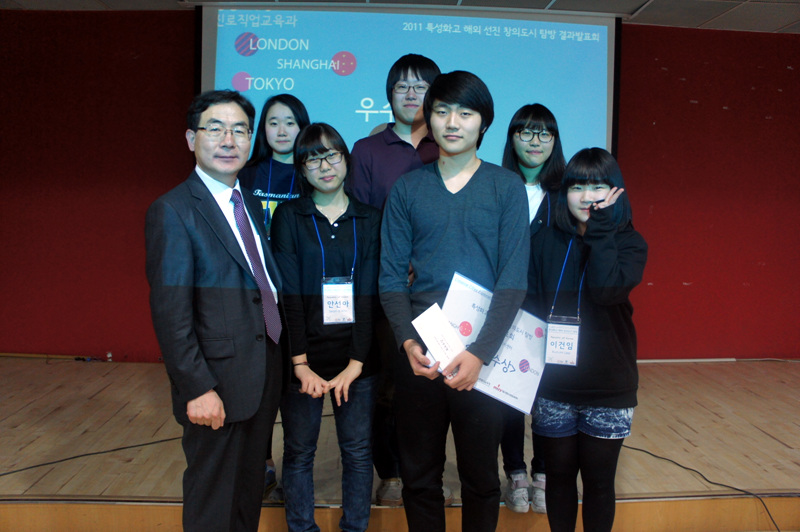
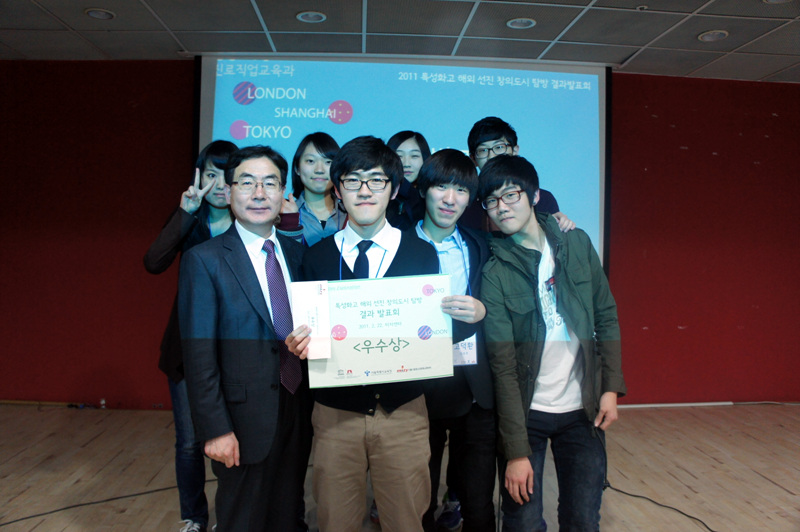
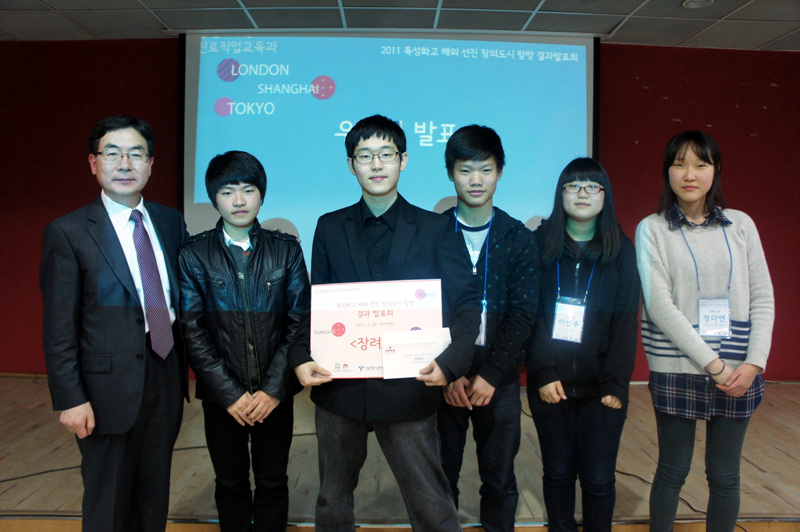 왼쪽 위부터 도강&먹튀, 평창수, Olleh(아래)팀
왼쪽 위부터 도강&먹튀, 평창수, Olleh(아래)팀